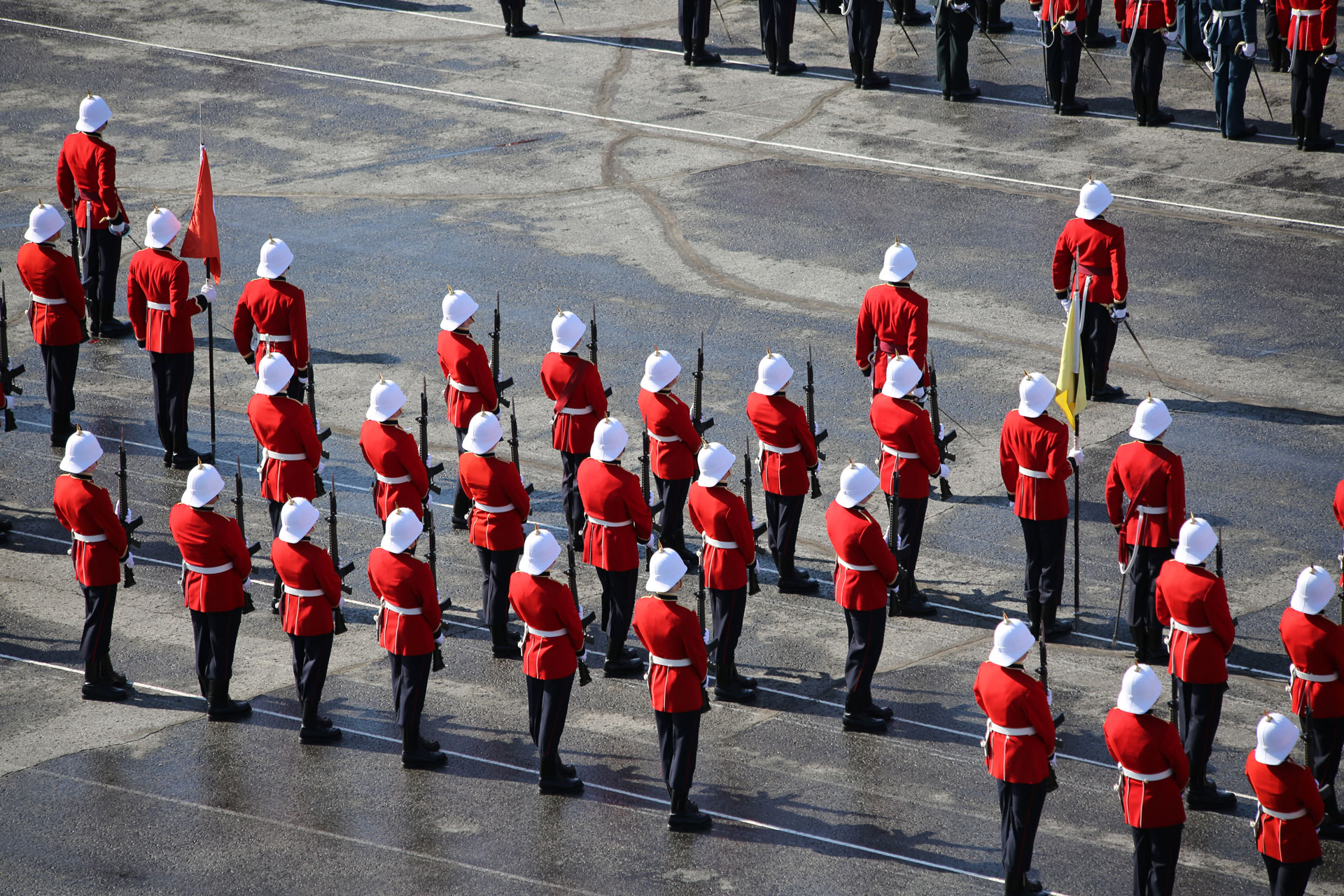
RMC Professor B.J.C McKercher presented at U of O
 Professor B.J.C McKercher, Royal Military College of Canada, presented ‘British Foreign Policy and the Lethality of the German Threat, 1890-1939’ on March 6, 2009 at the University of Ottawa. Professor B.J.C. McKercher’s talk explored how the United Kingdom perceived and responded to the rise of Germany from the end of the 19th Century to the beginning of the Second World War. With his areas of specialisation encompassing modern international relations history, 19th and 20th Century British and American foreign policy, and modern British and modern European history, Professor McKercher is a graduate of the London School of Economics. He has written The Second Baldwin Government and the United States, 1924-1929: attitudes and diplomacy (Cambridge UP, 1984), Esme Howard. A Dip lomatic Biography (Cambridge UP, 1989); and Transition of Power: Britain’s Loss of Global Preeminence to the United States, 1930-1945 (Cambridge, 1998). Professor McKercher is a Fellow of the Royal Historical society and is the editor of the journal Diplomacy and Statecraft. He is currently completing a SSHRC-funded research project on Canada-United Kingdom relations during the interwar period.
Professor B.J.C McKercher, Royal Military College of Canada, presented ‘British Foreign Policy and the Lethality of the German Threat, 1890-1939’ on March 6, 2009 at the University of Ottawa. Professor B.J.C. McKercher’s talk explored how the United Kingdom perceived and responded to the rise of Germany from the end of the 19th Century to the beginning of the Second World War. With his areas of specialisation encompassing modern international relations history, 19th and 20th Century British and American foreign policy, and modern British and modern European history, Professor McKercher is a graduate of the London School of Economics. He has written The Second Baldwin Government and the United States, 1924-1929: attitudes and diplomacy (Cambridge UP, 1984), Esme Howard. A Dip lomatic Biography (Cambridge UP, 1989); and Transition of Power: Britain’s Loss of Global Preeminence to the United States, 1930-1945 (Cambridge, 1998). Professor McKercher is a Fellow of the Royal Historical society and is the editor of the journal Diplomacy and Statecraft. He is currently completing a SSHRC-funded research project on Canada-United Kingdom relations during the interwar period.
‘British Foreign Policy and the Lethality of the German Threat, 1890-1939’
__________________________________________________________________________________________________
RMC professor Dr. A. G. Dizboni, on “Military Conflict: Proliferation”
Dr. A. G. Dizboni, a professor of political studies and economics at the Royal Military College of Canada in Kingston, Ontario, was a speaker on the panel discussion titled “Military Conflict: Proliferation” at the 2009 Political Studies Students’ Conference, whose theme was “The Never-Ending Story? Conflicts in the Middle East”. Dr. A. G. Dizboni was one of several panel commenting on why the Iranian government is so interested in developing nuclear power. “The issue is more complicated than presented by the media,” said Dizboni, who was born and raised in Iran and received a first graduate degree in Tehran in Islamic studies and political science. “I’m trying to be objective, but sensitive to the issues.” The Iranian government says a ban on nuclear programs should apply to “existing stocks of nuclear material, not just future ones.” As for Canada, although it’s against nuclear proliferation and seeks international nuclear disarmament, it’s also a member of NATO, which has nuclear arms as a “deterrent”.
Dizboni noted that in 1978, the U.S. government reached a preliminary agreement with the Shah of Iran for “joint nuclear production”. The agreement, “recently declassified”, accommodated “serious U.S. concerns about possible nuclear weapons development and possibility of instability of the government in Iran.” The current fundamentalist Muslim government, one of a series since fundamentalist Muslims overthrew the shaw in 1979, “has never raised security” as its reason for seeking a nuclear program, Dizboni said. It claims the material produced will be used “only for civilian purposes,” he added. “Nuclear weapons are described by the Iranian Muslim clergy as ‘unIslamic’.”
Dizboni acknowledged, though, that Iran’s ruling clergy have several reasons for being interested in a nuclear program. They fear that U.S. governments have been interested in “regime change” in Tehran. They’re also insecure about Iranian security generally; their regime isn’t part of “any security alliance”. Dizboni added that the behavior of Iran’ “clerical regime” since 1979 in domestic and foreign policy has raised “serious concerns that once nuclear development has been mastered, development of weapons will be much easier.” The IAEA has never been able to confirm that Iran is trying to develop nuclear weapons, but suspects Iran is “using diplomacy” to “buy time” to develop nuclear weapons. If Iran does acquire nuclear arms, that could open a “Pandora’s Box of nuclear proliferation in the Middle East,” Dizboni said. The Obama administration has shown interest in engaging the Iranian government diplomatically. Iran’s rulers, in turn, plan to keep information about how m uch uranium they’ve enriched so far – one of the keys to making nuclear weapons is as a “trump card” in such negotiations.
